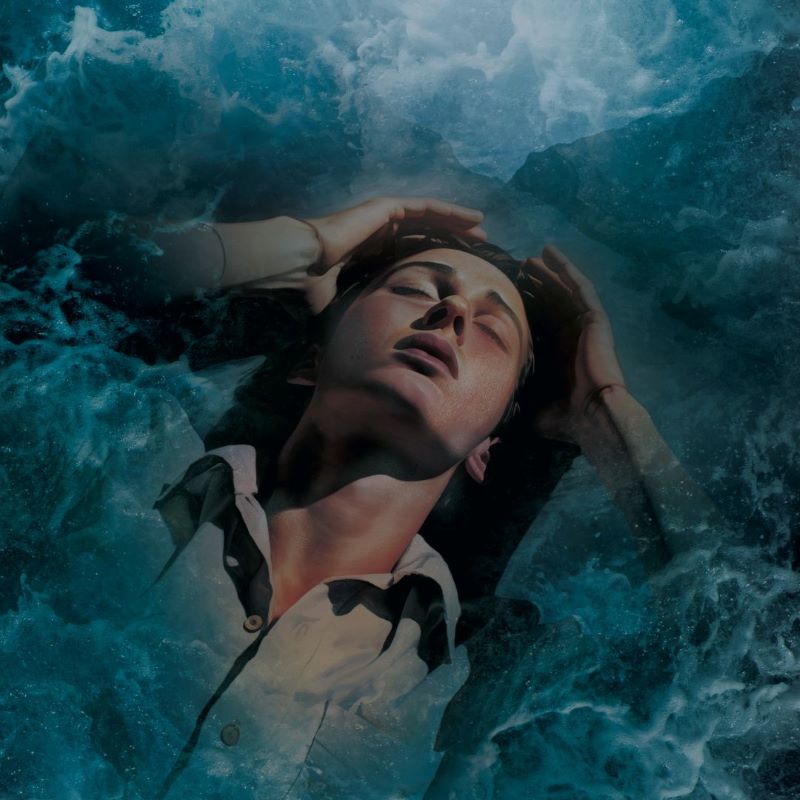Riders to the Sea written by Ralph Vaughan Williams based on the play by JM Synge visits MAST Mayflower Studios from Thursday 30 January to Saturday 1 February 2025.
We spoke to artistic director of OperaUpClose and director of Riders to the Sea, Flora McIntosh, ahead of the show.
Why Riders to the Sea?
When OperaUpClose moved to Southampton we were really keen to explore music and stories that reflected the environment and community we were now part of. Stories of and from the sea led me to Riders.
What struck me immediately was how much more than the sum of its parts this piece is – ostensibly a very specific story of a small place, it actually holds huge universal themes of love, grief and home that speak to the core of our humanity.
So it is both small and intimate, and epic and mighty – perfect for OperaUpClose.
Riders to the Sea is just 40 minutes long in its original form; I saw this as a brilliant opportunity for reinventing and reframing a classic work through commissioning new writing that could illuminate, enhance and expand the original material. And through this reinvention a totally different approach to the narrative has emerged – it’s been a true process of exploration and discovery, one which I’m excited to share.
Do you need to know much about the play or opera to enjoy the show?
I would say, hand on heart, you don’t need to know anything in advance. Just like you don’t need to know anything about a film you might choose to watch, or a book you might choose to read.
Sung in English and with captions throughout, there are multiple layers of storytelling going on in this production using sound, video, words, movement…
I really hope everyone takes something different from it, there is no ‘right’ way.
This is your directorial debut at OperaUpClose, how are you feeling about that?
Well, I guess the most honest response would be excited, privileged and appropriately terrified!
What I have found most rewarding is the bringing together of an exceptional team. When I say privileged, I mean it, working with these brilliant artists is the best; but also directing for OperaUpClose demands a distilling of narrative and a refocusing of characters which enables a special kind of intensity. There’s nowhere to hide – it’s a thrilling new creative muscle to flex.
This production again (like last year’s The Flying Dutchman) has no pit so the orchestra is on stage with actors, why is presenting your shows in this way important to you?
So much storytelling in opera is told through sound. The instrumental players and the colours and textures they provide are key to the narrative and always so much more than an accompaniment to the singers.
Performing at an intimate scale gives us an amazing opportunity to rethink the instruments as key characters in the piece.
All the characters speak, just some speak through their instruments and some through their song.
Taking this approach dismantles the barrier that a pit can sometimes create – the audience aren’t just receiving the story, they are in it. And our approach to reinvention, not reduction, means we are able to make really strong, contemporary artistic choices that take the classics into a new place for new audiences.
The show mixes recordings and projections with live music and singing. As a director, how do you bring all these elements together?
Yes, it is quite complicated. The key is ensuring you have brilliant people facilitating their area of expertise…
I’m lucky, this production is an embarrassment of talent!
Bringing those people together in shared purpose and being clear that we are all telling the same story is what my job is really about. Each element weaves together and integrates to create a multi-media, multi-sensory theatrical world that serves the music and drama but never distracts.
Tell us about the captioning in the show
Broadening access to opera and removing the barriers that exist is so important. The approach to captioning integrates the text into the very fabric of the production through font, design and animation, so the written word becomes a narrative device that can enhance everybody’s experience of the piece. Integrating the captions this way means that no audience member has to take themselves out of the action if they need/want to read the words – it’s all part of one story and a truly multi-sensory experience.
Riders to the Sea is stopping in eight UK locations, why is touring important to the company?
Touring is central to our activity as a company – making work locally and touring it nationally allows us to connect with communities and experience a brilliant diversity of response.
Particularly working at this scale, we are able to take opera to places that rarely get to experience the art form; and by going to these multiple locations we can truly champion opera as a live, vibrant theatrical experience that can speak directly and powerfully to all audiences.
What do you hope audiences will take from the show?
This is always such a difficult question – audiences always take something different than you imagine they might, and I embrace that.
But, I hope that some take away an experience that has changed their view of what opera can be and who it is for. And I hope they are given an opportunity to reflect on the great, agonising and beautiful truth that grief is the price we pay for love, nothing is ever really lost and there is always a path to the light.
Tickets for Riders to the Sea (30 January – 1 February 2025) are on sale at mayflower.org.uk or 02380 711811.
- In Common is not for profit. We rely on donations from readers to keep the site running. Could you help to support us for as little as 25p a week? Please help us to carry on offering independent grass roots media. Visit: https://www.patreon.com/incommonsoton

